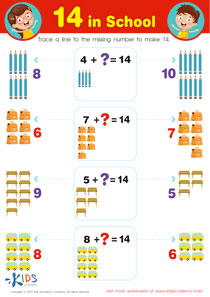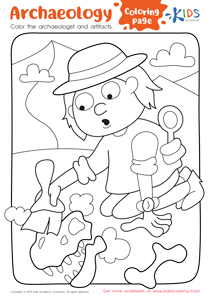Understanding subtraction Normal Subtraction Worksheets for Ages 5-8
6 filtered results
Difficulty Level
Grade
Age
-
From - To
Subject
Activity
Standards
Favorites
With answer key
Interactive
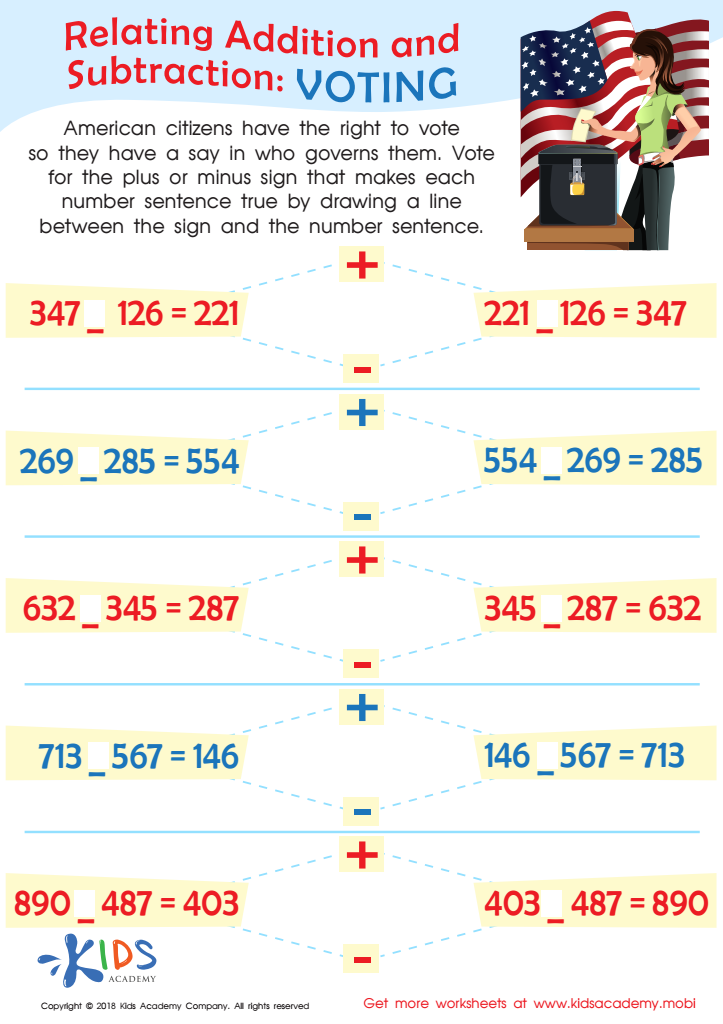

Voting Worksheet
This worksheet combines Social Studies and Math, teaching kids the democratic concept of voting. Guide learners to observe the problem, and decide if it needs a plus or minus. They "vote" for the correct answer by drawing a line from the problem to the correct operation symbol. Tally up the votes to check the answers!
Voting Worksheet
Worksheet
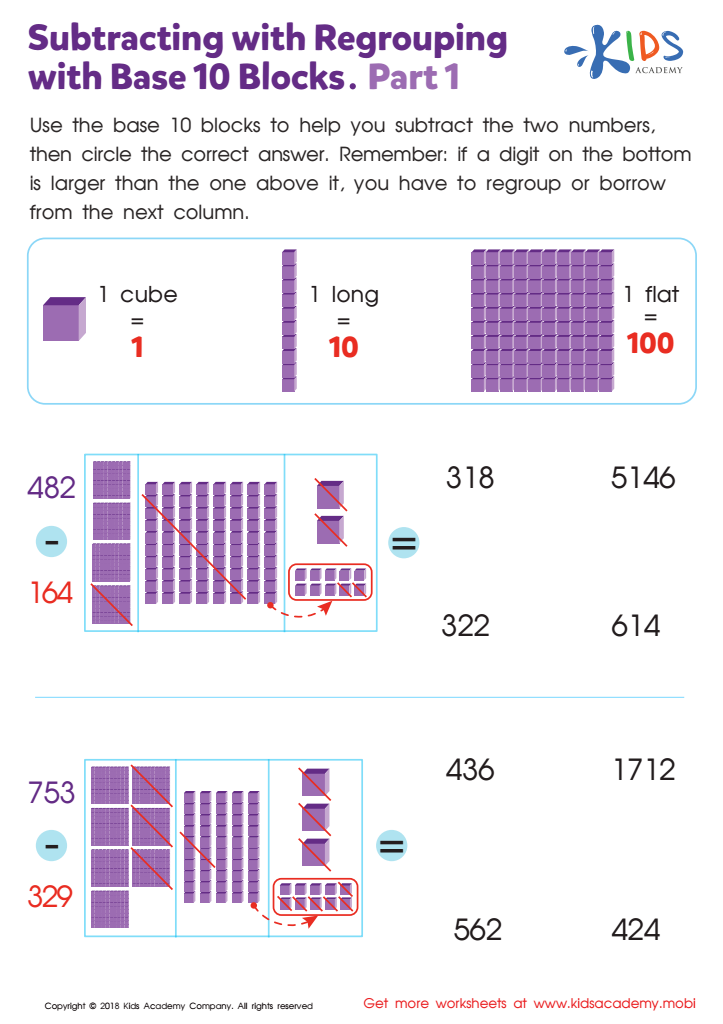

Subtracting with Regrouping with Base 10 Blocks. Part1 Worksheet
Subtracting with regrouping can be tough, but visuals make it easier! This worksheet uses colorful base ten blocks to help kids understand regrouping. Go over each problem starting at the ones, and review regrouping with a picture when needed. Finish by circling the correct answer.
Subtracting with Regrouping with Base 10 Blocks. Part1 Worksheet
Worksheet
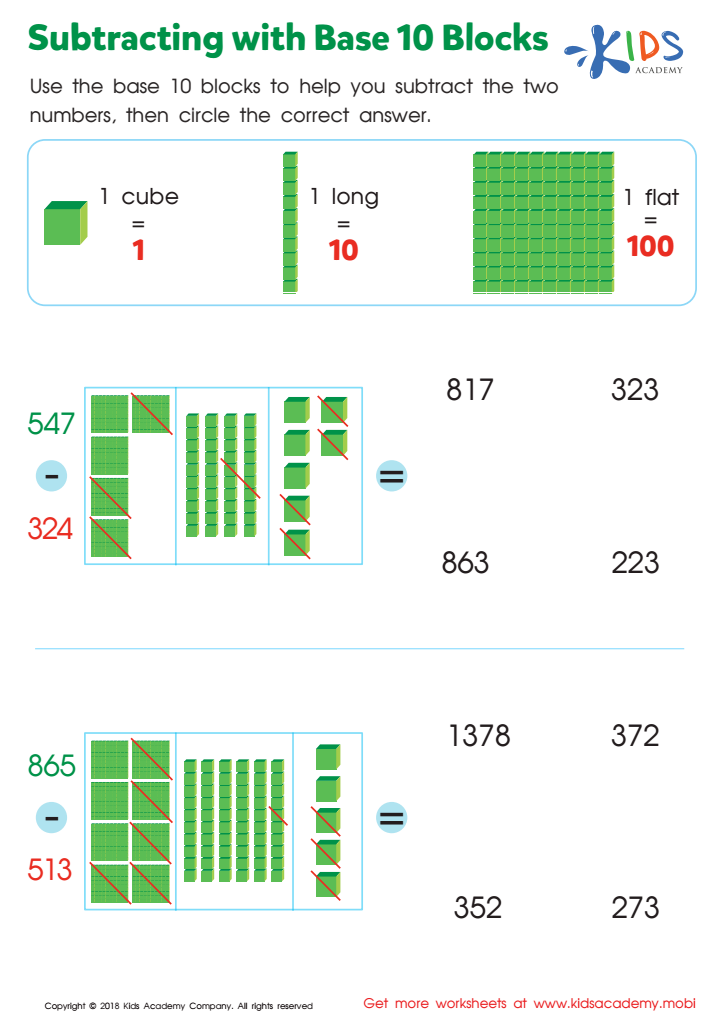

Subtracting with Base 10 Blocks Worksheet
Is your child having difficulty with 3-digit subtraction? They're not alone! Show your kid the idea behind subtracting with the help of Kids Academy's PDF worksheet. Colorful green base blocks are used to visualize the concept. Starting from the tens column, subtract each number and use the images for guidance. Allow your child to circle the correct answer for a comprehensive math lesson.
Subtracting with Base 10 Blocks Worksheet
Worksheet
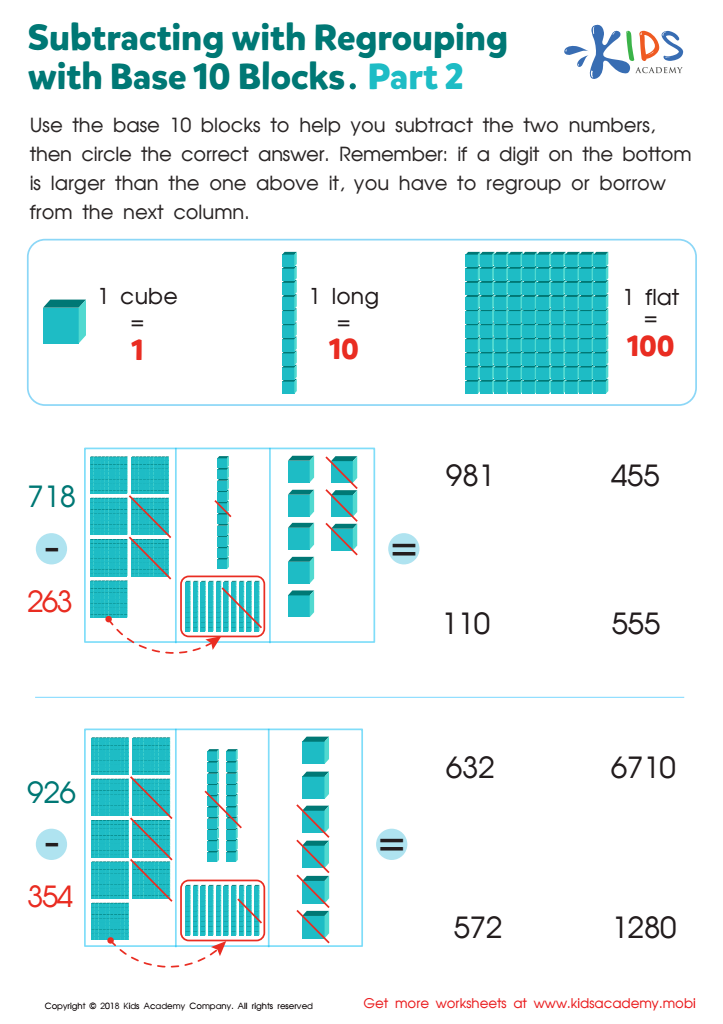

Subtracting with Regrouping with Base 10 Blocks. Part 2 Worksheet
Give your kids the practice they need to master subtracting with regrouping with Kids Academy's printable worksheet. It contains two 3-digit problems for kids to solve, plus colorful blocks to help them understand the concept more easily. Help your kids succeed!
Subtracting with Regrouping with Base 10 Blocks. Part 2 Worksheet
Worksheet
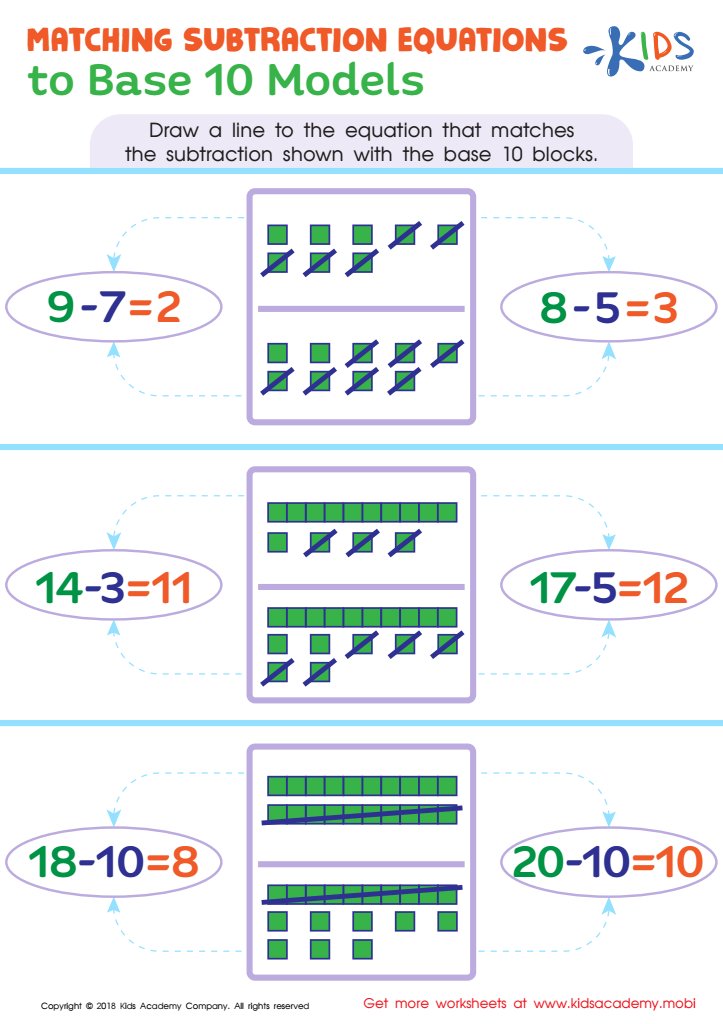

Matching Subtraction Equations To Base 10 Models Worksheet
Help your student draw a line to the equation that matches the subtraction shown with the base 10 blocks. Guide them through the task, ensuring they have good subtraction, counting and problem-solving skills. This tracing sheet is easy enough to complete with your support; the three mathematical problems here should be straightforward.
Matching Subtraction Equations To Base 10 Models Worksheet
Worksheet
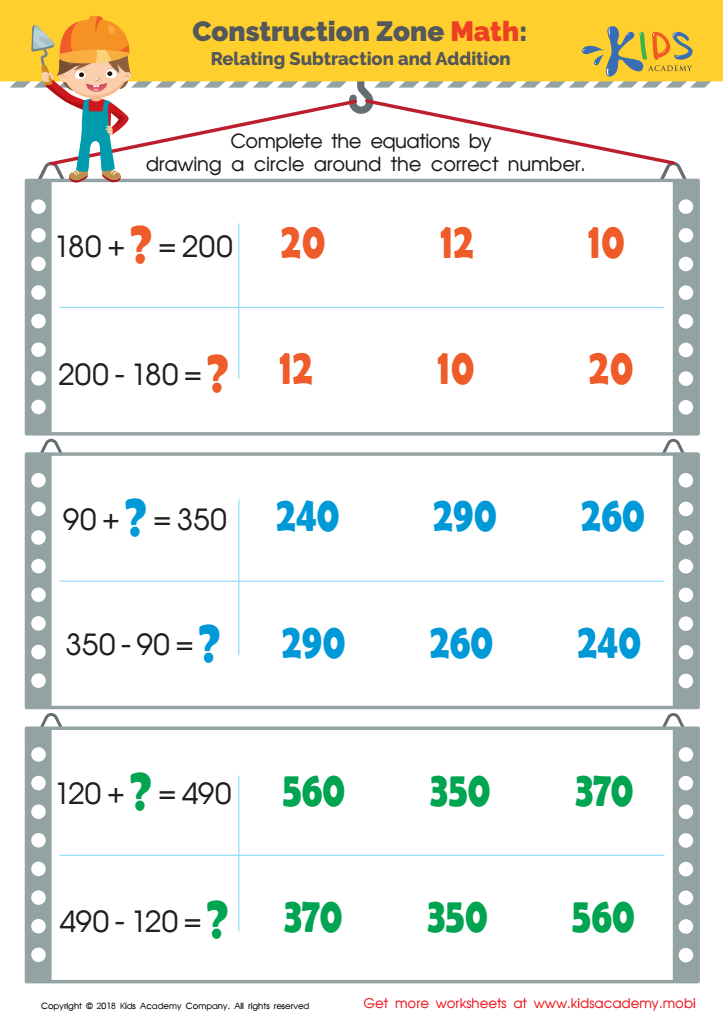

Construction Zone Math: Relating Subtraction and Addition Worksheet
Help kids master the concept of solving for missing numbers with subtraction. Use this cute worksheet featuring construction elements and colorful equations. Show them how to subtract to find the missing number, then circle the answer. It'll help them increase their number sense and get ready for algebra.
Construction Zone Math: Relating Subtraction and Addition Worksheet
Worksheet
 Assign to the classroom
Assign to the classroom




.jpg)

